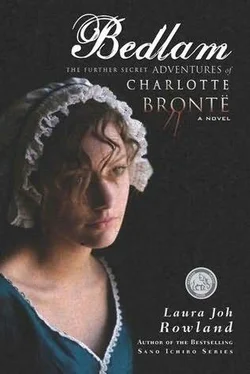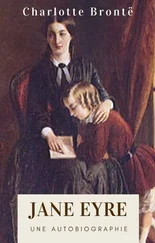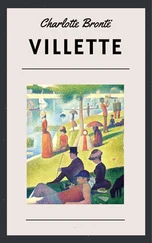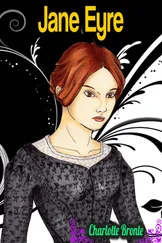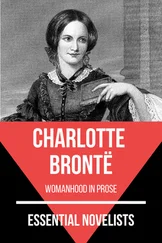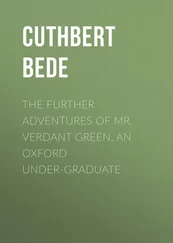Laura Rowland - Bedlam - The Further Secret Adventures of Charlotte Bronte
Здесь есть возможность читать онлайн «Laura Rowland - Bedlam - The Further Secret Adventures of Charlotte Bronte» весь текст электронной книги совершенно бесплатно (целиком полную версию без сокращений). В некоторых случаях можно слушать аудио, скачать через торрент в формате fb2 и присутствует краткое содержание. Жанр: Исторический детектив, на английском языке. Описание произведения, (предисловие) а так же отзывы посетителей доступны на портале библиотеки ЛибКат.
- Название:Bedlam: The Further Secret Adventures of Charlotte Bronte
- Автор:
- Жанр:
- Год:неизвестен
- ISBN:нет данных
- Рейтинг книги:5 / 5. Голосов: 1
-
Избранное:Добавить в избранное
- Отзывы:
-
Ваша оценка:
- 100
- 1
- 2
- 3
- 4
- 5
Bedlam: The Further Secret Adventures of Charlotte Bronte: краткое содержание, описание и аннотация
Предлагаем к чтению аннотацию, описание, краткое содержание или предисловие (зависит от того, что написал сам автор книги «Bedlam: The Further Secret Adventures of Charlotte Bronte»). Если вы не нашли необходимую информацию о книге — напишите в комментариях, мы постараемся отыскать её.
Bedlam: The Further Secret Adventures of Charlotte Bronte — читать онлайн бесплатно полную книгу (весь текст) целиком
Ниже представлен текст книги, разбитый по страницам. Система сохранения места последней прочитанной страницы, позволяет с удобством читать онлайн бесплатно книгу «Bedlam: The Further Secret Adventures of Charlotte Bronte», без необходимости каждый раз заново искать на чём Вы остановились. Поставьте закладку, и сможете в любой момент перейти на страницу, на которой закончили чтение.
Интервал:
Закладка:
“Lord Eastbourne can’t be disturbed,” the official said. “Come back another time.”
“Tell him it is Charlotte Bronte. Tell him I must speak with him about John Slade.”
I didn’t know which name had changed his attitude, but the official said, “One moment.” He left, then soon returned. “Follow me.”
He escorted me through a series of ill-lit passages and left me in an office. Lord Eastbourne rose from his chair. He was a tall, robust man who had the appearance of a country solicitor. Ruddy skin complemented features that were blunt and strong. He would have looked as much at ease walking the moors as he did behind his massive desk, which was covered with letters and documents written in a bold, slanted, masculine hand. On first glance he was a big improvement over Lord Unwin, but I cautioned myself that appearances were often deceiving.
“Miss Bronte,” he said, coming out from behind his desk to shake my hand. “It’s an honor to meet you. I’ve been briefed on the good work you did for us.”
I was glad he knew who I was. It saved me the trouble of convincing him that I’d helped Slade save the British Empire.
Lord Eastbourne seated me on a divan and himself in an armchair opposite me. “Whatever I can I do for you, just ask.”
His brown eyes were shrewd and intelligent but not unkind. I poured out the story of how I’d come upon Slade in Bedlam and everything that had happened since. Lord Eastbourne listened with close attention. When I’d finished, I said, “I need to know what has happened to Slade. I came to you because I had nowhere else to turn.”
Concern appeared in Lord Eastbourne’s expression. “You’ve posed me a bit of a dilemma. Information about our agents is strictly confidential.”
My heart sank.
“But I have a certain amount of discretion. And considering the fact that you risked your life for the sake of our kingdom, I owe you an explanation.”
Hope resurged. I eagerly leaned forward. “Where is Slade?”
“Before we discuss John Slade, I should give you a little background on the assignment he undertook for us three years ago,” Lord Eastbourne said.
I tried to quell my fear that he was postponing bad news.
“Slade was posted to Russia,” Lord Eastbourne began.
“I’m aware of that. He told me before he left.”
“What do you know about Russia?”
“I know that Russia is a land where Europe blends with Asia.” Since Slade had left for Russia, I had read up on it. “It covers millions of square miles, and its population includes Mongols, Slavs, Turks, and Tatars. Their written language is the Cyrillic alphabet. The state religion is the Orthodox Christian Church, which I understand combines Roman Catholicism with pagan rituals.”
“Those are some basic facts,” Lord Eastbourne said in the condescending tone that a schoolmaster uses toward a clever little girl. “Allow me to tell you a little more. Russia began, during the ninth century, as a handful of principalities in the Ukraine, controlled by tribal chiefs. It was invaded in the thirteenth century by Mongols. Russia was united under Prince Ivan the Great, who drove out the Mongols in the fifteenth century. He arrested, imprisoned, tortured, and executed anyone who opposed his rule. When he died, there ensued a period of uprisings and civil wars that lasted into the seventeenth century. A new dynasty, the Romanov, took over, and still reigns today.”
“I know. I have studied Russia’s recent history.” My habit of pride in my education compelled me to demonstrate my knowledge to Lord Eastbourne, and I hoped I could speed up this lesson on Russia so we could proceed to the matter of John Slade. “During the last two centuries, Russia has won multiple wars against Turkey and Persia. The result is that Russia captured the Crimea and gained other territory, along the Black Sea coast, the Bosporus, and the mouth of the Danube. It has incorporated Georgia and Finland, part of Armenia, and expanded westward into Poland and Lithuania. When Napoleon invaded it in 1812, Russia fought back so fiercely that he was forced to retreat. Russia became a major world power, an empire that extends from Poland to the Pacific Ocean, and the Arctic Ocean to the Persian Gulf. Today, Russia is Britain’s rival for control of the Middle Eastern territories. Its influence in those parts is a threat to Britain’s Indian Empire.”
“You are well informed,” Lord Eastbourne said, surprised into respect. “But please allow me to broaden your understanding. Russia is a backward, primitive country controlled by the present Tsar, Nicholas Pavlovich. He is a tyrant who has absolute power over his subjects. They have none of the rights or freedoms that make our own country great.”
He swelled with patriotic pride; then he turned grim. “Our relationship with Tsar Nicholas is complicated. On one hand, we are thankful to him for maintaining order in Europe. He has vigorously acted to crush revolutions and preserve the ruling monarchies. In 1849, for example, when Polish citizens of the Austrian Empire rose up in support of Hungarian rebels, he sent Russian troops to help Emperor Franz Josef put down the insurrection. On the other hand, we consider Russia a threat because the Tsar is bent on enlarging his domain. His army is almost a million men strong. India is a sitting target, its wealth ripe for plunder. Britain must prevent Russia from invading India and maintain her own influence in the Middle East.”
I knew all this, but I forced myself to listen politely. “Fortunately for us, the Tsar has problems at home, which have checked his ambitions. There is much civil unrest. The Russian leaders fear that subversive ideas from the West will bring about a cataclysmic revolution within Russia’s own borders. In order to control their own people, they created a secret police force known as the Third Section. The Third Section maintains surveillance on Russian citizens suspected of revolutionary activity. Its agents censor material printed in the press. They investigate crimes against the state, such as sabotage and political assassinations. They often provoke revolutionaries to commit those crimes, then imprison them or exile them without a trial.”
“This is all very interesting,” I said, “but how does it concern Slade?”
“Slade’s purpose in Russia was twofold,” Lord Eastbourne said. “He went there to establish contact with Russian revolutionaries, supply them with money, and do whatever he could to further their cause and weaken the Tsar’s regime. That he did, while posing as a Russian scholar and journalist. Second, he was supposed to put himself in a position to learn what the Tsar’s plans are regarding action against Britain. He achieved both purposes, although the details as to how are unclear.”
For three years I’d wondered what Slade was doing in Russia; now I knew, but I had yet to learn anything that pertained to the present.
“Slade managed to infiltrate the Kremlin-the Tsar’s palace,” Lord Eastbourne said. “He was our best agent in Moscow. He smuggled messages to us, reporting secrets from the highest echelon of the Russian government. But in January of this year, his messages stopped. So did the flow of all other intelligence from Moscow. We heard nothing until February, when one of our Russian informants showed up in London. He told us that Slade had turned traitor.”
My mouth dropped. Shock delivered after too many previous shocks rendered me speechless.
“Apparently, Slade had given the Third Section the names of his three fellow British agents,” Lord Eastbourne said. “The Third Section arrested and murdered all of them. Our informant said that Slade had begun working for the Tsar, as an expert on British espionage, foreign policy, and military strategy.”
Читать дальшеИнтервал:
Закладка:
Похожие книги на «Bedlam: The Further Secret Adventures of Charlotte Bronte»
Представляем Вашему вниманию похожие книги на «Bedlam: The Further Secret Adventures of Charlotte Bronte» списком для выбора. Мы отобрали схожую по названию и смыслу литературу в надежде предоставить читателям больше вариантов отыскать новые, интересные, ещё непрочитанные произведения.
Обсуждение, отзывы о книге «Bedlam: The Further Secret Adventures of Charlotte Bronte» и просто собственные мнения читателей. Оставьте ваши комментарии, напишите, что Вы думаете о произведении, его смысле или главных героях. Укажите что конкретно понравилось, а что нет, и почему Вы так считаете.
